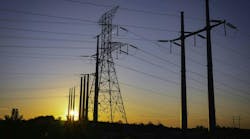IEEE Power & Energy Society and the Federal Energy Regulatory Commission have entered into a Memorandum of Understanding to address energy infrastructure and related market challenges due to the significant changes in energy supply, demand and technology.
The MOU was officially signed into order by Barry L. Shoop, 2016 IEEE president and CEO, and David Ortiz, deputy director for the FERC Office of Electric Reliability, at the IEEE headquarters in Piscataway, New Jersey, on Nov. 16, 2016. As a formal agreement, the MOU helps align the two organizations' efforts to address the nation's energy challenges due to the growth in renewable generation resources, distributed energy resources, electric vehicles, energy storage and more. However, an increase in the availability of natural gas and environmental requirements has uncovered new opportunities for improving the efficiency and reliability of the bulk power system.
“With electric power technologies advancing at such a tremendous pace, the MOU will help to ensure that the best technical knowledge will help the Commission as it seeks to ensure reliability and just and reasonable rates for the bulk electric system,” said Ortiz.
“This is an important step in IEEE's history with helping develop and support the power and energy industry's forward progress. As part of this MOU, IEEE and FERC will work together to build an implementation plan to accomplish a set of important objectives. In the immediate, we will address a set of infrastructure challenges by sharing technical requirements and more,” said Shoop.
The MOU outlines objectives for the two organizations in support of the improvement of electric energy systems, including:
- Sharing technical needs and addressing challenges for infrastructure planning, operation, and marketing optimization;
- Identifying existing and emerging technological requirements and needs and approaches for addressing them; and
- Developing, disseminating and sharing information on advancements in technology and associated policy and standards for planning, operations and maintenance of electric energy systems and their component parts.
“Modern society has reached a point where virtually every crucial economic and social function depends on the secure and reliable operation of the electrical power and energy infrastructures. The IEEE provides unique, unbiased and independent technical leadership to the worldwide electrical power and energy industry through collaboration of private and public sectors,” said Damir Novosel, IEEE PES president. “The signing of this MOU with FERC represents an important step in solving our country’s sustainable energy future in a reliable, safe and cost-effective way. Our membership's deep knowledge in advancing grid modernization needs is very important to address electrical power system challenges and opportunities. The IEEE and FERC cooperation will yield the results to advance technology and the associated energy policies and standards that build on an already solid foundation.”

